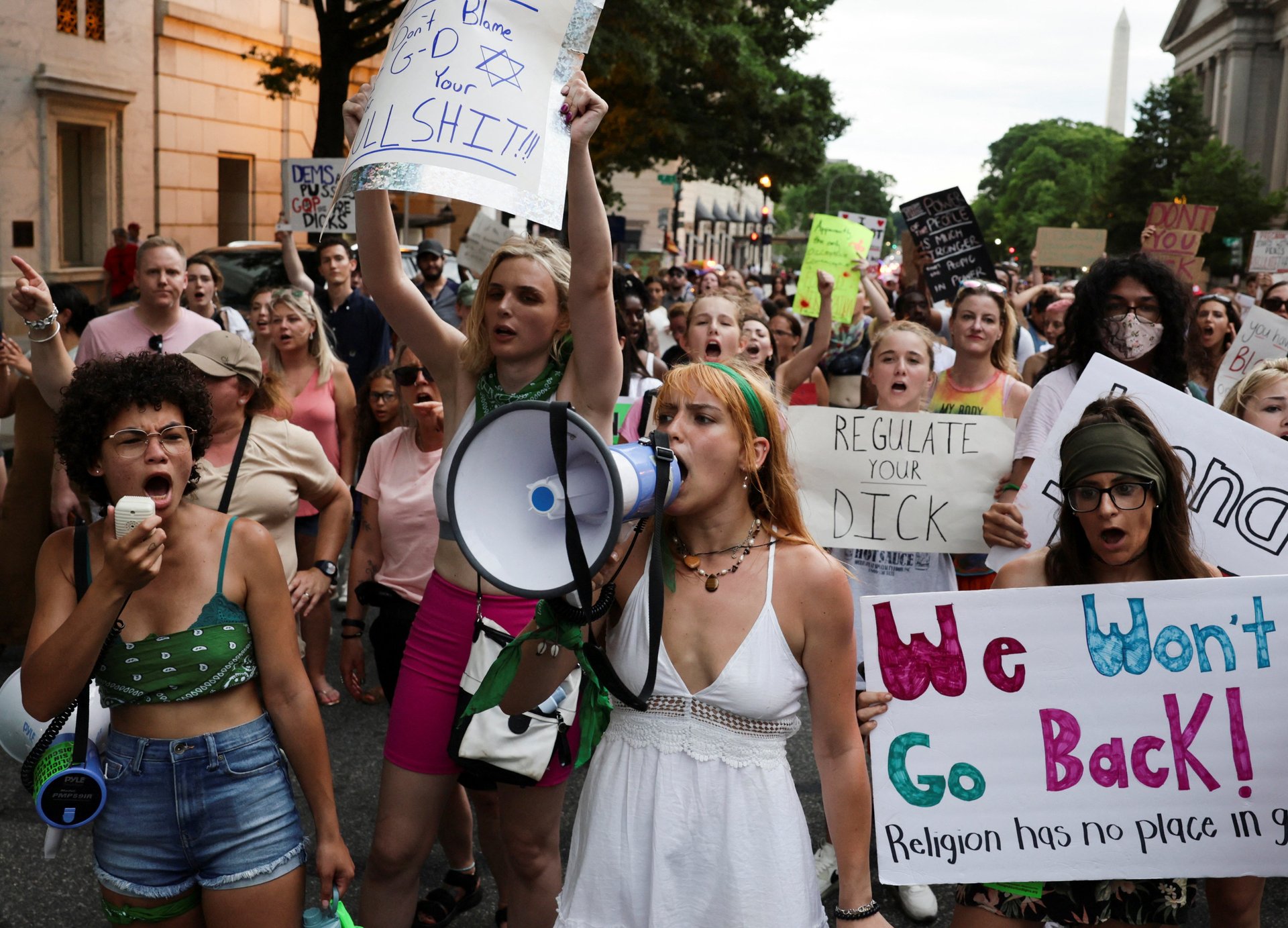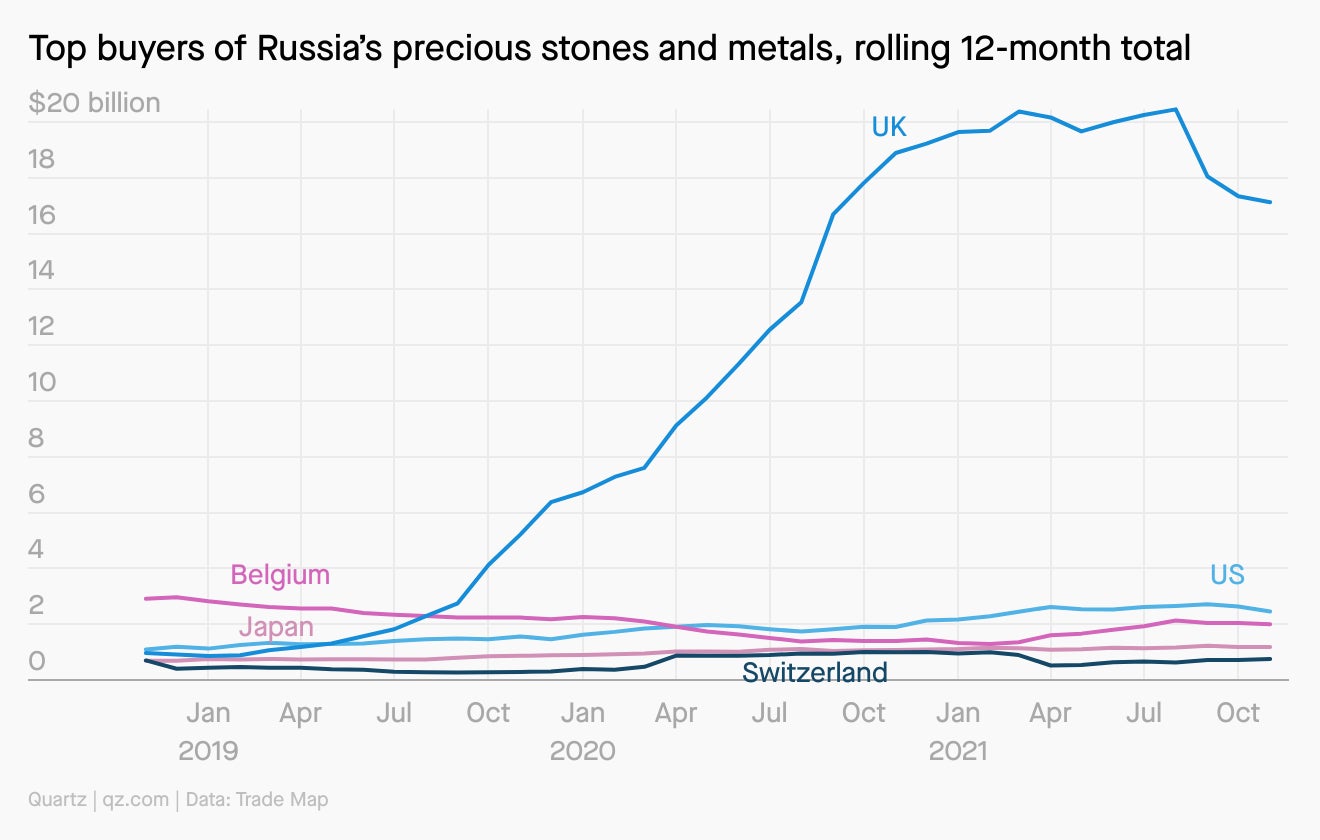🌍 Thousands march
Good morning, Quartz readers!


Good morning, Quartz readers!
Here’s what you need to know
Abortion rights protests continued across the US. As demonstrators marched, abortion clinics began to close in trigger law states, and Pride events took on a new urgency.
Some US companies will financially support employees seeking abortions. Tech giants and banks were among those who made commitments.
More than 1 million US voters have switched to the Republican Party. According to the Associated Press, many suburban swing voters are making the switch.
G7 nations launched a $600 billion global infrastructure plan. The plan aims to counter China’s Belt and Road Initiative. The summit also announced additional impending sanctions on Russia (more below).
Russia defaulted on its debt. The grace period has ended for a $100 million interest payment that was due May 27, marking Russia’s first foreign debt default in over a century.
Thousands demonstrated in Madrid ahead of the NATO summit. Protestors called for an end to the military alliance, which will consider Finland and Sweden’s bids to join in a two-day meeting starting Wednesday.
Ecuadorian president Guillermo Lasso cut gas prices. The announcement came amid two weeks of indigenous protests in Quito demanding price controls.
What to watch for
G7 leaders are meeting in the Bavarian Alps to discuss global inflation and continued pressure on Russia as the invasion of Ukraine continues with strikes in Kyiv. The US, UK, Canada, and Japan will ban Russian gold imports in an attempt to cut funding from the regime of Russian president Vladimir Putin. US president Joe Biden has insisted that G7 nations must stick together in the fight against Putin, while other member countries decide if they want to join the ban. The official announcement is expected Tuesday (June 28).
The UK is by far the biggest importer of Russian gold. UK prime minister Boris Johnson said the ban will “directly hit Russian oligarchs and strike at the heart of Putin’s war machine.” Russia’s gold exports bring in around $19 billion in revenue each year, its largest known export after oil and gas.

Roe v. Wade: What you need to know
Protests broke out over the weekend in the US after the Supreme Court overturned Roe v. Wade, the landmark 1973 decision that legalized abortion in the country. We’ve compiled a reading list about the court’s decision and how it compares with laws around the globe:
See our full Roe v. Wade reading list for the latest articles.
Globalization’s next stop
Globalization held out the shimmering prospect of a zero-friction world. But in global economics, just as in physics, zero friction is near-impossible.
Is globalization really dead, though? In the latest Forecast email, Quartz senior reporter Samanth Subramanian and editor Ana Campoy explain that rather than pronouncing the system dead, we can start planning to alleviate the new frictions created by globalization—as well as the ones that have been there all along.
✦ Get the Forecast in your inbox by signing up for a membership today—you’ll get 40% off when you do!
Quartz’s most popular
😬 Indian startups laid off over 10,000 employees in the first six months of 2022
Surprising discoveries
Microbes in the permafrost could reveal things about life on Mars. The cold and salty environment is one of Earth’s closest analogs to the planet.
A restaurateur sold Jordan’s national dish, mansaf, in a cup. The new way of serving up the dish was met with controversy.
The largest waterfall in the American west has never been open to the public. Industrial structures have blocked access to the natural wonder.
NASA launched its first commercial rocket in Australia. The dry landscape near the equator makes it the ideal site.
The world’s largest bacterium is the size of a human eyelash. Scientists say the size of the thiomargarita magnifica is like if a human were as tall as Mt. Everest.
Our best wishes for a productive day. Send any news, comments, mansaf, and pictures of kangaroos from space to [email protected]. Reader support makes Quartz available to all—become a member. Today’s Daily Brief was brought to you by Clarisa Diaz, Morgan Haefner, Julia Malleck, and Samanth Subramanian.